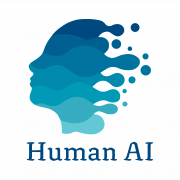Socioemotional education and learning
In recent years, a movement has been generated in favor of promoting, disseminating and developing emotional education as a psycho-pedagogical innovation.
The Rethinking Education report (Unesco, 2015) certifies the need to overcome traditional academic learning and to foster a holistic approach to education and learning, in order to overcome traditional dichotomies between cognitive, emotional and ethical aspects.
Emotional intelligence
The construct of intelligence has undergone a very important conceptual expansion, especially since Gardner’s theory of multiple intelligences (1993), which has had a great impact on the attention to diversity in the educational context.
“Ability to perceive, appraise and express emotions accurately, access and generate feelings that facilitate thinking, understand emotions and regulate them to enable emotional and intellectual growth.”
Mayer & Salovey, 1997, What is emotional intelligence?
The academic deliberation about this concept is long and interesting: the development of the concept of emotional intelligence, Salovey and Mayer (1990), Goleman, D. (1995), interpersonal and intrapersonal intelligence, Gardner 1993; personal intelligence, Sternberg (2000), the so-called social competence by Rose-Krasnor (1997), Cherniss (2000), Topping, Bremmer and Holmes (2000) and Zirkel, (2000); etc.
Under the term emotional intelligence there are several conceptions that allow understanding this reality in at least three ways: as a cultural movement, as a personality trait and as a mental capacity.
From intelligence to emotional education
From the educational point of view, it is preferred to speak, instead of intelligence, of emotional education, emphasizing the interaction between the person and the environment and, as a consequence, great importance is given to the learning and progress of the person in these competencies.
“Emotional education is understood as a continuous and permanent educational process, which aims to enhance the development of emotional competencies as an essential element of the integral development of the person, in order to train him/her for life”.
Bisquerra, R. (2009b). Orientació psicopedagògica, educació emocional i ciutadania.
The concept of emotional education is broader than that of emotional intelligence, although it is based on it; it has an integrating and open character. It includes contributions from neuroscience, research on positive psychology and subjective well-being, and the concept of flow, among others.
In the midst of the conceptual debate, a common point stands out: the existence of a set of emotional competencies, with a great value for life, competencies that can be learned and acquired. Emotional education therefore aims to contribute to this integral development.
The educational implication of this statement is very clear: it is necessary to focus efforts on the development of emotional competencies and to delegate to psychology the elucidation of the construct of emotional intelligence.
Emotional education at the service of skills development
From this educational approach, it is not enough to perform “some activities” from time to time. It requires intentional, systematic and effective work that requires an organized, coherent and integrated set of activities articulated with a common purpose.
- Learning to motivate oneself.
- Dealing with frustration.
- Control anger and impulsive behavior.
- Develop and spread a sense of humor.
- Generate and self-generate positive emotions.
- Foster empathy.
- Delaying gratification.
This is a short list of emotional competencies whose development allows us to be better prepared for life, favoring aspects such as learning processes, interpersonal relationships, problem solving and the achievement and maintenance of a potential job, promoting a predisposition to learning, reducing conflict, reducing risk behaviors, improving the classroom climate, among other benefits.
“Emotional competencies are the set of knowledge, abilities, skills and attitudes necessary to understand, express and regulate emotional phenomena appropriately”.
Pérez, N, & Filella, G. (2019). Emotional education for the development of emotional competencies in children and adolescents. Praxis & Knowledge
Educating people, more than intelligences
In the educational ecosystem there is a clear conviction: teachers come to their classes with the desire to transform people, not intelligences.
Students are subjects susceptible of assuming not only technical or cognitive skills and competencies, but competencies in which they learn to manage in any situation, challenge and opportunity, whether personal, family or professional; so that they put into play and put into practice everything they have learned and acquired in the teaching and learning process.
Taking into account this implication entails, within the educational framework, designing personalized interventions adapted to the target audience with an active and motivating methodology. In this sense, it is worth remembering that a key element prior to the implementation of emotional education programs is the training of the educators in charge of their application.
Cfr. “Emotional education for the development of emotional competencies in children and adolescents“.
In order to assess competencies and develop them, try Human AI and learn 35 soft skills with just one text.





